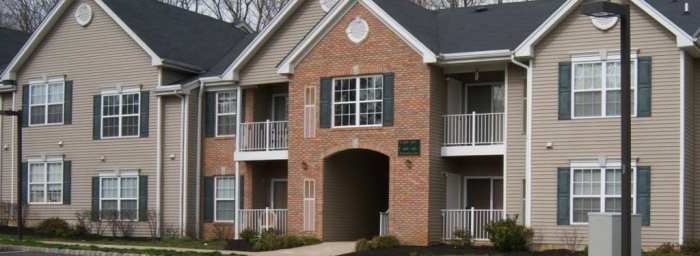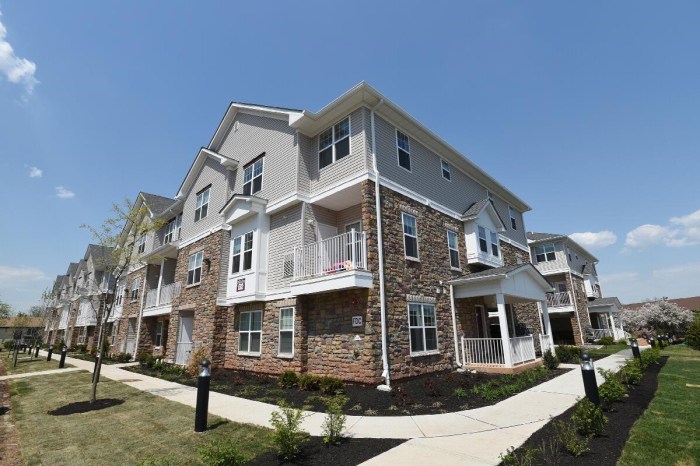Rent a House in New Jersey USA Your Guide
New Jersey Rental Market Overview
Rent a house in new jersey usa – The New Jersey rental market is a dynamic landscape influenced by factors such as location, property type, and seasonality. Understanding the current market conditions is crucial for prospective renters seeking to find suitable housing.
Current State of the New Jersey Rental Housing Market
New Jersey’s rental market is generally competitive, with varying degrees of intensity across different regions. Demand often outpaces supply in popular areas, leading to higher rental costs. Factors such as job growth, proximity to major cities, and desirable amenities contribute to market fluctuations.
Rental Prices Across Different Regions of New Jersey
Rental prices significantly vary across North, Central, and South Jersey. Northern New Jersey, particularly areas near New York City, commands the highest rental rates due to its proximity to employment centers and upscale amenities. Central New Jersey offers a blend of suburban and urban living, with rental costs generally falling between those of North and South Jersey. Southern New Jersey typically has the most affordable rental options, although this varies depending on specific locations and property types.
Popular Rental Property Types in New Jersey
Apartments, houses, and townhouses are the most prevalent rental property types in New Jersey. The popularity of each type depends on location and renter preferences. Apartments are abundant in urban areas, while houses and townhouses are more common in suburban and rural settings.
Average Rental Costs in Major New Jersey Cities
The following table provides a general comparison of average rental costs for various property types in select New Jersey cities. Note that these are estimates and actual prices can vary based on numerous factors.
| City | Apartment (1 Bedroom) | Apartment (2 Bedroom) | House (3 Bedroom) |
|---|---|---|---|
| Jersey City | $2,200 | $3,000 | $4,500 |
| Hoboken | $2,500 | $3,500 | $5,000+ |
| Newark | $1,800 | $2,500 | $3,500 |
| Trenton | $1,500 | $2,000 | $2,800 |
Finding Rental Properties
Locating the right rental property in New Jersey involves utilizing various online platforms and employing effective search strategies to navigate the competitive market.
Online Platforms and Resources
Several websites and apps facilitate rental property searches in New Jersey. Popular options include Zillow, Trulia, Apartments.com, Realtor.com, and Craigslist. Each platform offers different features and search functionalities. It’s beneficial to explore multiple platforms to maximize your search reach.
Searching for Rental Properties Using Different Criteria
Effective property searches involve specifying criteria such as location, price range, desired amenities (e.g., parking, pet-friendliness, in-unit laundry), and property type. Refining your search parameters increases the likelihood of finding suitable options.
Effective Use of Online Search Filters
Most online rental platforms offer robust search filters. Learn how to effectively utilize these filters to narrow down results. For example, you can filter by price range, number of bedrooms and bathrooms, property type, and specific amenities. Experiment with different filter combinations to find properties that meet your needs.
Avoiding Rental Scams
Be wary of deals that seem too good to be true. Never wire money or send payments via untraceable methods. Verify the landlord’s identity and legitimacy. Always conduct in-person viewings before committing to a lease. Report suspicious listings to the appropriate authorities.
Rental Application Process
The rental application process in New Jersey involves several steps, from submitting an application to securing a lease. Understanding the process and required documentation is crucial for a smooth transition.
Typical Steps in Applying for a Rental Property
The process generally involves submitting a completed rental application, providing necessary documentation (discussed below), undergoing a credit and background check, and potentially attending an interview with the landlord. Once approved, you’ll negotiate lease terms and sign the lease agreement.
Required Documentation for Rental Applications
Landlords typically require various documents to assess your suitability as a tenant. This often includes a completed rental application, proof of income (pay stubs, tax returns), credit report, background check, and references. Specific requirements may vary between landlords.
New Jersey Landlord-Tenant Laws Concerning Rental Applications
New Jersey landlord-tenant laws protect both landlords and tenants. Landlords must adhere to fair housing laws and cannot discriminate based on protected characteristics. Tenants have rights to privacy and reasonable accommodations. It’s essential to familiarize yourself with these laws.
Sample Rental Application Checklist
- Completed rental application form
- Proof of income (pay stubs, W-2s, tax returns)
- Copy of government-issued photo ID
- Credit report
- Background check
- References (previous landlords or employers)
- Security deposit (if required)
- First month’s rent
Lease Agreements and Tenant Rights

Source: affordablehomesnewjersey.com
Understanding the terms of a lease agreement and the rights and responsibilities of both landlords and tenants is essential for a positive rental experience in New Jersey.
Key Components of a Standard New Jersey Lease Agreement
A standard lease typically includes details about the rental property, rental term (length of lease), rent amount, payment schedule, security deposit, responsibilities of both parties (e.g., maintenance, repairs), and procedures for lease termination.
Rights and Responsibilities of Landlords and Tenants
Landlords are responsible for maintaining the property’s habitability and addressing necessary repairs. Tenants are responsible for paying rent on time, maintaining the property’s cleanliness, and adhering to the terms of the lease agreement. Both parties have legal protections under New Jersey law.
Common Lease Clauses and Their Implications
Lease agreements often include clauses addressing pet policies, subletting, late rent fees, and lease termination conditions. Carefully review these clauses and understand their implications before signing the lease.
Different Types of Lease Agreements
Common lease types include month-to-month and fixed-term leases. Month-to-month leases offer flexibility but may have higher monthly rent. Fixed-term leases provide stability but require commitment for the specified duration. Each type has its own advantages and disadvantages.
Factors Influencing Rental Costs
Several interconnected factors determine rental costs in New Jersey. Understanding these factors can help renters make informed decisions.
Key Factors Influencing Rental Costs
Location is a primary factor, with properties in desirable areas commanding higher rents. Property size, amenities (e.g., updated appliances, in-unit laundry, parking), and market demand also significantly influence rental costs. The condition and features of the property also play a role.
Impact of Seasonality on Rental Prices

Source: msecnd.net
Rental prices can fluctuate seasonally. Demand may be higher during peak seasons (e.g., summer, school year start), leading to increased rental rates. Conversely, prices might be slightly lower during off-peak seasons.
Hierarchical Structure of Factors
- Location (Proximity to employment centers, schools, amenities)
- Property Type and Size (Houses, apartments, townhouses, number of bedrooms/bathrooms)
- Amenities (In-unit laundry, parking, updated appliances, pet-friendliness)
- Market Demand (Supply and demand dynamics in the specific area)
- Property Condition (Upgrades, renovations, overall maintenance)
Interaction of Factors
For example, a large, newly renovated house in a prime location with ample amenities will command a significantly higher rent compared to a smaller, older apartment in a less desirable area with limited amenities. The interaction of these factors determines the final rental rate.
Neighborhood Guides for Renters
This section provides brief overviews of three diverse New Jersey neighborhoods to assist renters in their search.
Hoboken
Hoboken, a vibrant city across the Hudson River from Manhattan, offers a bustling urban lifestyle with easy access to NYC. Rental costs are high due to its prime location and desirability. Property types include high-rise apartments, townhouses, and some smaller single-family homes.
- Pros: Excellent transportation, walkability, vibrant nightlife, proximity to NYC
- Cons: High rental costs, limited parking, can be crowded
Princeton
Princeton, known for its prestigious university, offers a blend of academic charm and suburban tranquility. Rental costs are generally high, reflecting the area’s desirability and strong economy. Property types include apartments, townhouses, and some larger single-family homes.
- Pros: Excellent schools, walkable downtown, strong sense of community, beautiful surroundings
- Cons: High rental costs, limited nightlife compared to urban areas
Cape May
Cape May, a historic coastal town, offers a relaxed seaside lifestyle. Rental costs are generally lower than in urban areas, although prices can increase during peak tourist seasons. Property types include apartments, houses, and charming Victorian-era homes.
- Pros: Beautiful beaches, charming downtown, relaxed atmosphere, affordable compared to other areas
- Cons: Limited job opportunities compared to urban areas, can be crowded during peak season
Illustrative Examples of Rental Properties
The following descriptions showcase the diversity of rental properties available in New Jersey.
Suburban Single-Family Home
Imagine a three-bedroom, two-bathroom house in a quiet suburban neighborhood. Features might include a fenced yard, a spacious kitchen, and a two-car garage. This type of property is ideal for families seeking space and privacy.
City Townhouse, Rent a house in new jersey usa
Picture a modern two-bedroom townhouse in a vibrant city like Jersey City. Amenities could include in-unit laundry, central air conditioning, and a private balcony. This option is perfect for young professionals seeking convenience and access to urban amenities.
Rural Farmhouse
Envision a charming farmhouse nestled on several acres in rural South Jersey. This property might boast a large kitchen, multiple bedrooms, and expansive outdoor space. This option is suited for those seeking peace and quiet and a connection with nature.
Frequently Asked Questions: Rent A House In New Jersey Usa
What is the average security deposit in New Jersey?
Security deposits in New Jersey typically range from one to two months’ rent, depending on the landlord and property.
How long does the rental application process usually take?
The application process can vary, but it often takes between one and four weeks, depending on the landlord’s processing time and background check results.
What are my rights as a tenant in New Jersey?
New Jersey offers robust tenant protections. Key rights include the right to a habitable dwelling, notice before eviction, and protection against illegal rent increases. It’s crucial to familiarize yourself with these rights.
Can I break my lease early in New Jersey?
Breaking a lease early can result in financial penalties. However, specific circumstances (e.g., military deployment, domestic violence) may allow for early termination without penalty. Consult your lease agreement and relevant laws.















